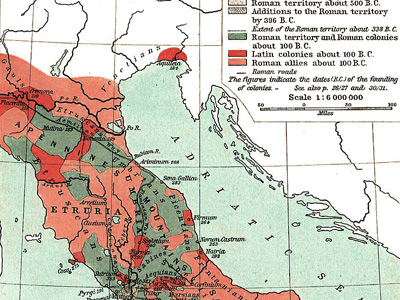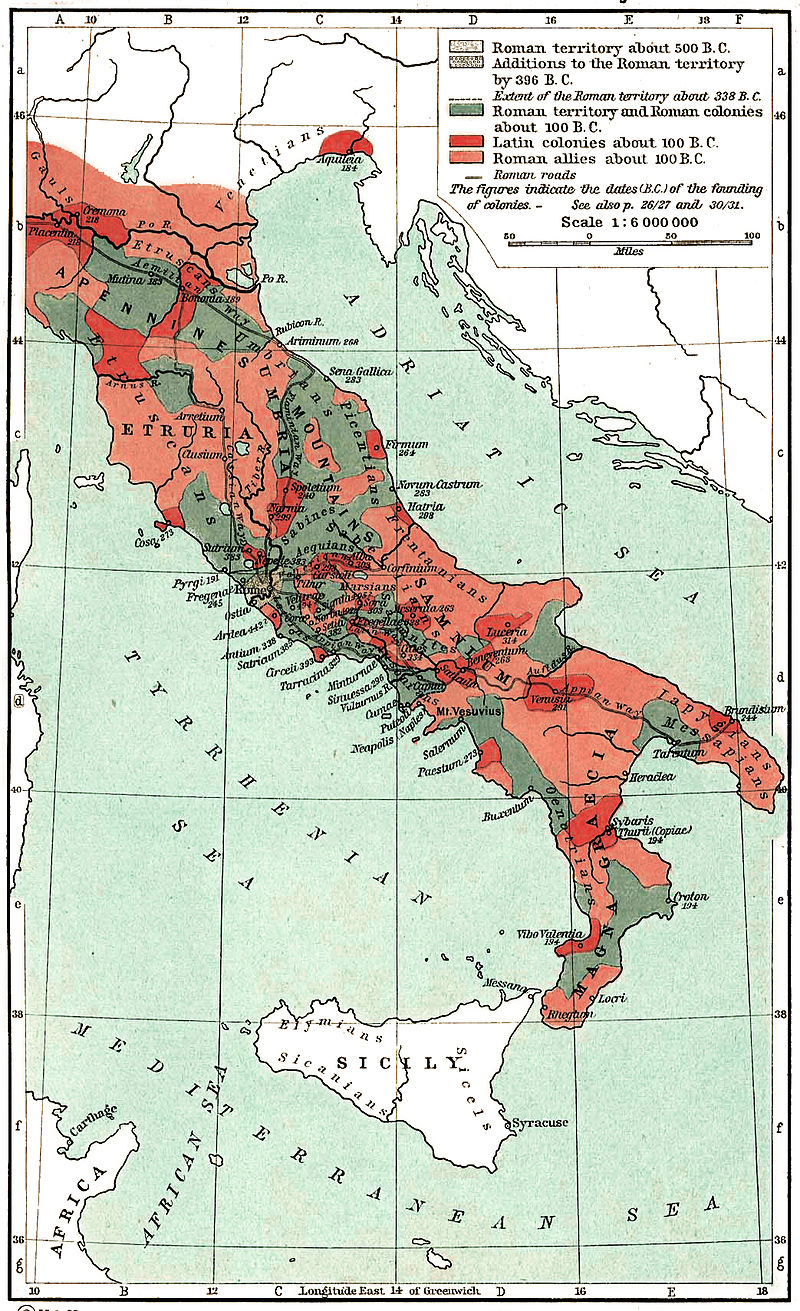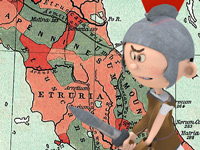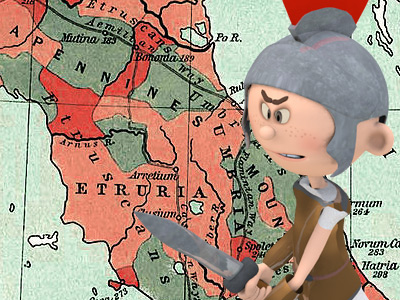Social War (91–88 BC)

The Social War (from socii ("allies"), thus Bellum Sociale; also called the Italian War, the War of the Allies or the Marsic War) was a war waged from 91 to 88 BC between the Roman Republic and several of the other cities in Italy, which prior to the war had been Roman allies for centuries.

Map of the Roman confederation in 100 BC, on the eve of the Social War. Note the patchwork political configuration. The Roman possessions (in grey-blue) straddle the strategic centre of the Italian peninsula and the Tyrrhenian coastal plain. Latin colonies (dark red) are scattered in strategic locations. Other socii (pink) are concentrated in the mountainous interior.

Origins
Roman victory in the Samnite Wars resulted in effective Roman dominance of the Italian peninsula. This dominance was expressed in a collection of alliances between Rome and the cities and communities of Italy, on more or less favorable terms depending on whether a given city had voluntarily allied with Rome or been defeated in war. These cities were theoretically independent, but in practice Rome had the right to demand from them tribute money and a certain number of soldiers: by the 2nd century BC the Italian allies contributed between one half and two-thirds of the soldiers in Roman armies. Rome also had virtual control over the allies' foreign policy, including their interaction with one another. Aside from the Second Punic War, where Hannibal had some limited success in turning some Italian communities against Rome, for the most part the Italian communities were content to remain as client states of Rome in return for local autonomy.
The Romans' policy of land distribution had led to great inequality of land-ownership and wealth. This led to the "Italic people declining little by little into pauperism and paucity of numbers without any hope of remedy."
A number of political proposals had attempted to address the growing discrepancy whereby Italians made a significant contribution to Rome's military force, while receiving disproportionately small shares of land and citizenship rights. These efforts came to a head under the impetus of Marcus Livius Drusus in 91 BC. His reforms would have granted the Roman allies Roman citizenship, giving them a greater say in the external policy of the Roman Republic The Roman Republic was a form of government of Rome and the era of the classical Roman civilization when it was run through public representation of the Roman people. Beginning with the overthrow of the Roman Kingdom (traditionally dated to 509 BC) and ending in 27 BC with the establishment of the Roman Empire, Rome's control rapidly expanded during this period - from the city's immediate surroundings to hegemony over the entire Mediterranean world.. Most local affairs came under local governance and were not as important to the Romans as, for example, when the alliance would go to war or how they would divide the plunder. The response of the Roman senatorial elite to Drusus' proposals was to reject his ideas and assassinate him. This brusque dismissal of the granting of rights that the Italians considered to be long overdue greatly angered them, and communities throughout Italy attempted to declare independence from Rome in response, sparking a war.
The Roman Republic was a form of government of Rome and the era of the classical Roman civilization when it was run through public representation of the Roman people. Beginning with the overthrow of the Roman Kingdom (traditionally dated to 509 BC) and ending in 27 BC with the establishment of the Roman Empire, Rome's control rapidly expanded during this period - from the city's immediate surroundings to hegemony over the entire Mediterranean world.. Most local affairs came under local governance and were not as important to the Romans as, for example, when the alliance would go to war or how they would divide the plunder. The response of the Roman senatorial elite to Drusus' proposals was to reject his ideas and assassinate him. This brusque dismissal of the granting of rights that the Italians considered to be long overdue greatly angered them, and communities throughout Italy attempted to declare independence from Rome in response, sparking a war.
HISTORY

RESOURCES
This article uses material from the Wikipedia article "Social War (91–88 BC)", which is released under the Creative Commons Attribution-Share-Alike License 3.0.
© Stories Preschool. All Rights Reserved.









